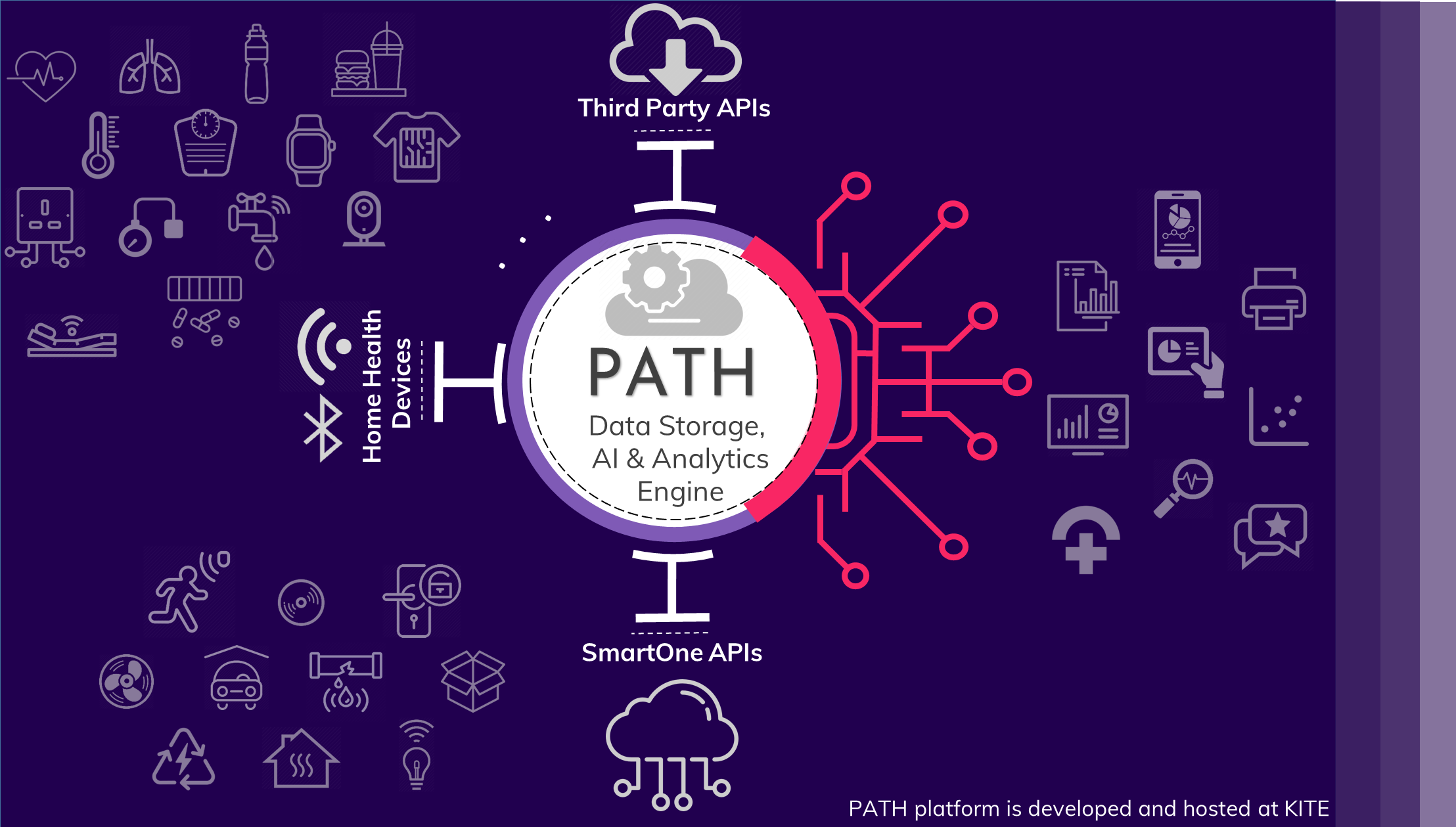About PATH:
In recent years the concept of smart homes and home health technologies has been widely spread among manufacturing industries. However, the dream of technology providing home healthcare has not become a reality for several reasons such as:
- Consumers cannot afford or are unwilling to spend as much on health technology as hospitals so the devices must be very inexpensive,
- There are no clinical engineering departments in peoples’ homes so installation and maintenance requirements must be minimal,
- Individual devices tend to produce lots of false alarms and caregivers do not have the time to sort through the noise,
- Developers and startup companies fail to commercialize their inventions because they cannot afford to conduct large enough trials to apply machine learning to improve performance and they cannot achieve sufficient sales quickly enough to remain viable at prices consumers can afford.
The PATH program provides a network that creates a pathway for rapid testing and commercialization of new home health products. The network began with nodes in Toronto, Ottawa, Waterloo and Edmonton.
-
The Toronto site is a ‘home within a lab’ that resembles a typical one-bedroom dwelling with functional plumbing and wiring. Study subjects can occupy the living space and test innovations in a real-life setting, while researchers can observe all studies from an overhead catwalk.
-
The Ottawa site is a living lab at the Perley-Rideau, a Seniors Village with 450 long-term care beds and 139 independent-living apartments.
-
The Waterloo site uses the Smart Apartment living lab at the Research Institute for Aging (RIA). The RIA is a non-profit dedicated to multidisciplinary approaches to enhancing care and quality of life for older adults and located on the University of Waterloo campus. It is connected to Schlegel Villages’ University Gates site, which consists of 192 long-term care beds and 240 under-construction assisted and retirement living apartments.
-
The Edmonton ‘laboratory’ is located at the Glenrose Rehabilitation Hospital (GRH), the largest free-standing, comprehensive tertiary rehabilitation hospital in Canada. The Edmonton laboratory is comprised of a number of facilities relevant to the PATH project, including the independent living suite, Courage in Motion Centre and I CAN Centre for Assistive Technology. The Edmonton laboratory is managed through the Glenrose Rehabilitation Research, Innovation and Technology Hub (GRRIT). The mandate of GRRIT is to lead and facilitate collaborations with academia, industry, entrepreneurs, clinical staff, patients and their families that lead to the development of innovative products and solutions. GRRIT provides access to clinical settings, traineeships, specialized equipment, technical advice and clinical evaluations and offers specialized expertise in engineering, design, product development and technology commercialization.
This program takes advantage of the communication backbone and smart home automation products provided by our main partner SMARTONE.
This company is experiencing rapid uptake in the market and it will provide PATH project access to large numbers of users for trials and, in the next step, access to a rapidly growing customer base.
The deployment of the system in 4 locations across CANADA and in more than 350 homes will produce big dataset that can be harnessed to facilitate the development of data fusion and AI algorithms. The novel techniques will improve the sensitivity of detecting signs of developing or deteriorating health conditions that require intervention (e.g. heart failure, diabetes, balance impaired, memory impaired, people with behavioral issues, visually and hearing impaired, etc.), and reduce false alarms and other unnecessary output to caregivers and healthcare providers.
